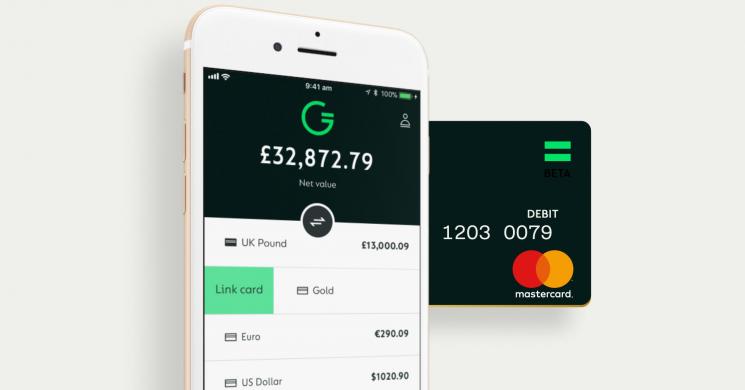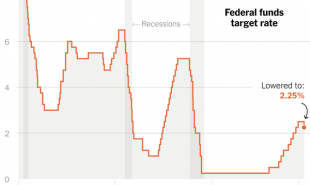
UPDATE: Glint Responds to our post. A representative from Glint contacted us and wanted to clarify, and correct what he described as errors in the piece below. The most important thing is that this product is Not a BlockChain driven product, a gross oversight on our part. And frankly a less appealing aspect to potential users who must trust financial custodians.
Here is the body of the email, with NO CHANGES and our comments in CAPS after
Hi,
I work with Glint and wanted to flag a number of errors in the piece ‘ANALYSIS: MASTERCARD'S NEW GOLD-BACKED DEBIT CARD’ that I hope you can amend as soon as possible.
The picture used in the article is from another company called Goldmoney. I have attached some other images that are relevant. AMENDED
In the rest of the article, there are a number of errors in the general understanding of what Glint is and who is behind it:
“Lloyds Bank in the UK has just partnered up with MasterCard to offer a new service which allows their clients to store their money in physical gold and comes complete with a debit card with which they can use that gold for day to day purchases.”
· Lloyds Bank and MasterCard have not partnered up with each other to offer this service. Glint is an independent company that has partnered with Lloyds and MasterCard separately.
· And most importantly, Lloyds has only partnered with Glint to provide the segregated accounts for fiat currencies to Glint’s customers.
· Glint allows its customers to store their money in physical gold, the service is not a tag on service for existing Lloyds / MasterCard customers, as suggested.
DULY NOTED
In paragraph 5:
“The point of this is, Banks via Mastercard and/or Visa are creating a product that benefits gold as a currency. That is a good thing. But it is being used to keep clients captive.”
· Lloyds has not created this product and have no involvement in the storage and transfer of gold through Glint. As above mentioned, Glint is an independent company. NOTED
· Additionally, Glint does not use a Blockchain pipeline either. OUR ERROR
Would greatly appreciate if you can make the required amendments as soon as possible. HOPEFULLY THIS BEING PLACED AT TOP OF THE POST CAN SERVE AS THE CORRECTIONS
Original Post amended to reflect the corrections:
Glint has partnered with Lloyds Bank in the UK , and MasterCard, to offer a new service which allows their clients to store their money in physical gold and comes complete with a debit card with which they can use that gold for day to day purchases.
Lloyds involvement with Glint , according to Glint personnel is only to provide the segregated accounts for fiat currencies to Glint’s customers.
Gold is Money. Now it Will Become Currency Again
Intro- Soren K.
Gold is in the process of being de-facto remonetized. What remains is its broad acceptance as currency, which necessitates a digital delivery system that can obviate the need for human trust. Blockchain is such a system.
However, This is NOT A BLOCKCHAIN PRODUCT.
How BlockChain Benefits Gold
The beauty of Blockchain for bankers is the distributed ledger balance accounting (DLBA) which prevents customers double-dipping on their account funds. On the client side if properly implemented, it will make certain that the Gold you bought is indeed "there".
Credit risk for seller is all but eliminated. Delivery risk for buyer is mitigated. It will also streamline mid office and drastically reduce credit department expenses over time. The client will love it because their gold is theirs alone and as liquid as cash theoretically. So you are now going to be able to spend it easily. Is that only a good thing? Or is it another tax on your savings? That depends on the product.
Again: This is NOT a BLOCKCHAIN PRODUCT
The Devil in the Details
The question unasked of the banks and credit card firms behind this product is this: Given that only Bitcoin provides DLBA and also user anonymity ( as we believe, but continuously are learning) how does the user of a bank's blockchain product retain privacy? Shouldn't they be able to do so if all transactions are safe via the DLBA process?
The point of this is, Banks via Mastercard and/or Visa are creating a product that benefits gold as a currency. That is a good thing. But it is being used to keep clients captive. (Glint- Lloyds has not created this product and have no involvement in the storage and transfer of gold through Glint. As above mentioned, Glint is an independent company.) You see, the ETF industry decimated bank "advisory" services. In regards to Gold, GLD obviated the need for buy and hold passive fund managers, which put a dent in the bank's fee based businesses at many levels. The promise of GLD is that you do hold Gold. But the practicality of that is not true. Try and get your Gold delivered using GLD shares.
You can Spend it Globally, But Can You See it Locally?
With the advent of a Blockchain pipeline having Gold on the back end and your debit card on the front end, you are theoretically closer to your physical Gold. You will be able to spend it easier without liquidating it is assumed. But we do not believe this to be the case. There will be storage fees, usage fees, possibly haircuts (cash available will be less than Bullion face value) on your Gold portfolio's value.
This is a product to claw back ETF business to the bank balance sheets. And if they are successful, your Gold will have effectively become CUSIP'd and in the system. You can spend it at will. But can you actually get it?
Be careful what you wish for. The goal of these businesses is to put a ring fence around their clients using those technologies that threaten to disrupt their very existence. We've written on this many times both predictively and positively.
So banks are going to roll their unhappy ETF clients into something like this. More internally generated fees for them, convenience for you. But can you get it delivered?
Related:
- 'Forget Bitcoin, Blockchain Kills FIAT' - Gold Analyst
- Q: Gold or Cryptos? -- A: Crypto Gold
- Blockchain Daily: Crypto Gold Rush Ensues, What Could Go Wrong?
New Gold-Backed Debit Card Launched In Partnership With MasterCard
via ZHE
In recent years, there has been a major debate about the respective merits of gold versus Bitcoin, even though many, not all, gold bulls are also supporters of the latter. Gold advocates generally view favourably Bitcoin’s inherent characteristics of decentralisation, finite supply and ability to operate (so far) outside of the usual interference by western central banks. Having said that, the launch of Bitcoin futures on the CME in the coming weeks could lead to naked shorting of “paper Bitcoin” by any parties, including central banks and large commercial banks, who deem capping of the Bitcoin price necessary. As we discussed last week in "Financial Times: Sell Bitcoin Because The Market Is About To Become "Civilized", this could align Bitcoin with one of the major issues which has held the gold market hostage for years, time will tell.
While many gold investors remain entrenched in the view that gold will (eventually) prove to be the better store of value, one thing many would acknowledge is that Bitcoin is likely to evolve into a superior means of payment. However, that could be in the process of changing.
A fintech start up is partnering with some financial heavyweights to create a payments system backed by physical – not paper – gold. According to the Financial Times.
The world’s oldest currency is being brought into the digital age with the launch of a debit card and app that will allow people to pay for goods in gold.
Fintech group Glint has teamed up with Lloyds Banking Group in the UK and MasterCard to create an app that enables people to load credit in various currencies, which can then be used to buy a portion of a physical gold bar. Customers use the app at the checkout to select whether to pay in a currency or gold, before transacting with their MasterCard.
The development marks the first time people in the UK and overseas can own just a portion of a gold bar through an app, which can then be used in mobile and debit card-based payments. The app also allows people to send gold to peers in the form of a digital payment. Jason Cozens, Glint’s chief executive and co-founder, said: “Everyone is familiar with gold as one of society’s oldest means of exchange, its universal acceptance, its reliability, its history as a store of wealth and as a means of underpinning the value of ‘paper’ currencies. “Unlike paper currencies, gold can’t be wiped out, devalued or corrupted.”
If you’ve been watching carefully Glint (website is glintpay.com) has been working towards this moment for some time. The Crunch reported a capital raising in August this year, noting the impressive list of backers.
Glint, a stealthy London fintech startup that promises a new “global currency,” has raised £3.1 million from a plethora of individual backers in the financial services and asset management space, alongside early-stage investor Bray Capital.
They comprise Haruko Fukuda, former CEO of the World Gold Council and NED of Investec Bank; Oliver Bolitho, formerly Chairman of Goldman Sachs Asset Management Asia; Hugh Sloane, co-founder of asset manager Sloane Robinson; and Lord Flight Of Worcester, formerly of Guinness Flight Global Asset Management.
Other supporters of the new app include the Tokyo Commodity Exchange, and NEC Capital Solutions, a technology integration company. The co-founder and COO of Glint, Ben Davies (right in the photo below), is well known to us for his media appearances - often lambasting manipulation of the gold price – and for running the precious metals investment fund, Hinde Capital. The CEO and co-founder, Jason Cozens, also has gold market experience, having set up “GoldMadeSimple.com, a website that allows investors to buy and store physical gold. Additionally, he set up two ecommerce and online marketing businesses.
In terms of how the service works, the FT reports.
Glint is working with Lloyds in the UK as the deposit holder for customers storing money on their app. When a customer decides to buy gold through the app, this is used to purchase part of a gold bar that is physically allocated in vaults in Switzerland. The app will initially be available in the UK and Europe from Monday before being rolled out in Asia and the US next year.
Mr Davies said the app helps to “democratise” gold by opening access to people who might not be able to afford to buy a whole bar, rather than the commodity being the “preserve of the wealthy”. He added: “The advent of electronic wallets and faster payments through technology means we’re able to use gold in the electronic payment system.
“We believe over next few decades people will need the ability to protect their money by owning gold and have the ability to spend it.
We doubt that we’ll have to wait two decades before the vast majority of people will need to protect the value of their money. It could be a matter of months, so Glint’s new service might prove timely. Here are some further thoughts from Davies in the FT article.
Glint’s new service is riding the wave of alternative payments, such as bitcoin, as more people seek payment methods that can store value in a way that differs from traditional currencies. Ben Davies, a co-founder of Glint, said: “We want to create a fairer form of money whereby we give you choice and control over how you protect your money in an era where central banks issue more currency, and so the value of your currency is falling.”
So, is the question gold, Bitcoin or both?
full article HERE
Read more by Soren K.Group









